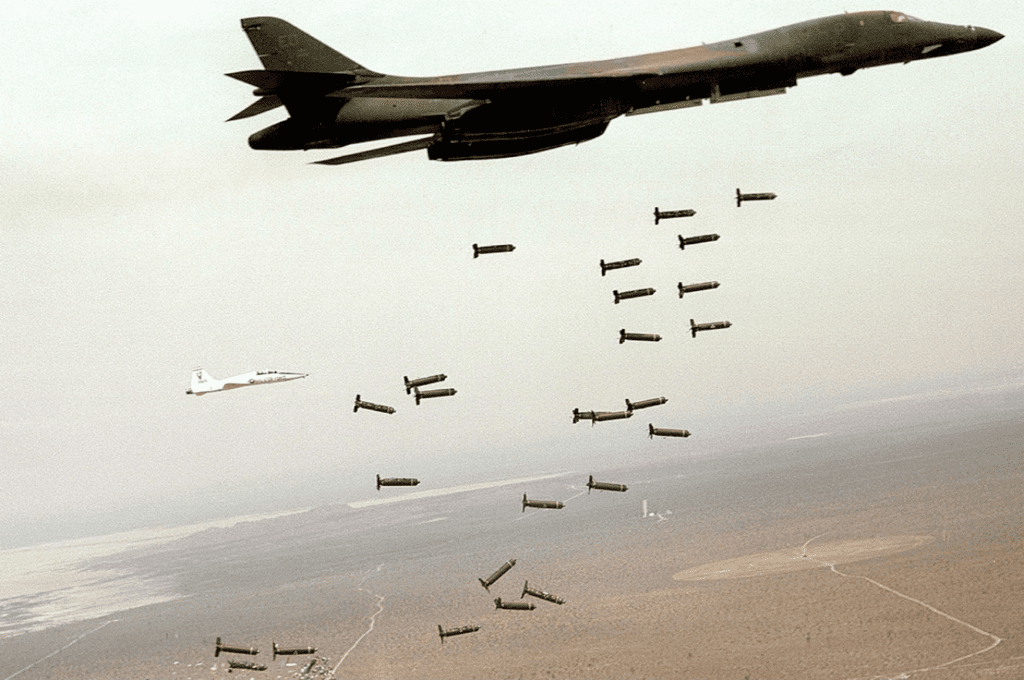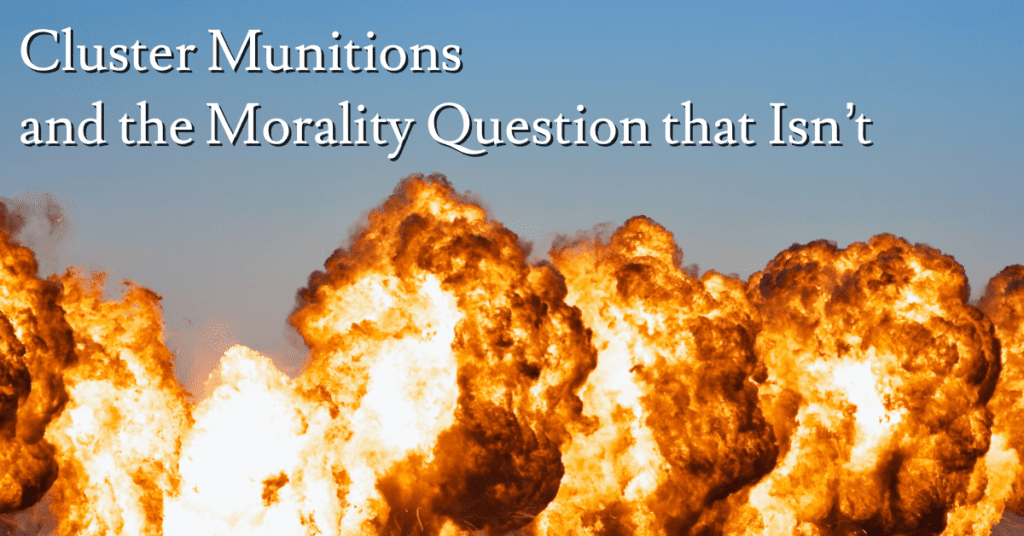Table of Contents
This is a bit more political than I usually like to get, but when you’re passionate about an issue, it’s hard to remain quiet.
I read something in the news that was an eye-opening learning experience. The United States decided to send something called cluster munitions to Ukraine, to assist in their efforts to fight back against the Russian invasion.
Now there’s a few points here that should be said.
Rules of War

First, I haven’t seen much about this in the news, so I thank Tangle once again for bringing it to my attention.
Second, I never heard of cluster munitions before reading this article. I know we’ve had several moments in modern history where people read a blurb on Instagram and instantly saw themselves as experts. I am not one of those people. In a matter of moments, if you’ve never heard of cluster munitions before, you will have as much knowledge about them as I have.
Finally, I’ll admit the concept of rules of war is really bizarre to me. I get that in a sport, rules are needed. Some might think there should be fewer rules in Mixed Martial Arts, for example. Nevertheless, there are some rules almost everyone agrees on. You might be perfectly OK with kneeing a guy in the head while on the ground, but still don’t want to see biting or crotch punching.
But war is different.
Can we really be civil as we try and kill one another? Apparently the answer is yes. Countries can come together and say if the need arises to massacre one another, we can at least retain our humanity. Thus bullets and missiles are a polite form of murder, whereas biological weapons are socially unacceptable.
But even though I struggle with the idea, I accept it. And appreciate it. And I think the world’s a better place with such rules.
I’d prefer no war… but beggars can’t be choosers.
Bullets and missiles are a polite form of murder, whereas biological weapons are socially unacceptable. Share on XWhat are Cluster Munitions?

And that brings us to cluster munitions. On one foot:
They are essentially bombs with tons of mini-bombs that explode outward in many directions.
Now, this just sounds like a nasty bomb. And war is war. It’s hell. Of course it’s gross and violent and you want to do as much as you can to win as quickly as possible.
Nevertheless, these bombs come with two primary issues:
a. They tend to cause much more immediate damage to civilians than ordinary bombs.
b. They have a tendency to produce lots of unexploded warheads that can detonate and hurt people for decades to come.
And for this reason well over one hundred countries have come together to ban their usage during warfare.
So… How Do You Feel About Cluster Munitions?

But here’s where is gets sticky.
Despite the fact that so many countries hate these things, three countries not signed to ban them include: Russia, Ukraine, and you guessed it, the United States of America.
Now the US will claim that their version of these bombs is less disastrous than other country’s versions. But, seriously, come on! When you lose the moral high ground to over one hundred countries, you need to really rethink your actions.
And who are some of these countries?
The heroin-producing, 9/11 instigating, women stay in the home and be slaves to their spouses, good ole Afghanistan. Who else? Well, Germany, Japan, and Italy–yes, all three axis powers–all hate cluster munitions. And heck, let’s toss Lebanon and Iraq in there for good measure.
And the US is not only not coming out against these horrific weapons of enduring civilian casualty, they’re sending them into an active war zone, near guaranteeing the suffering of thousands over the course of the next several decades.
This is not something to be proud of. This is something that puts us in a category of not all that much better than Russia!
What About Tomorrow?

What’s our justification?
Not much, to be honest.
We’re trying to help Ukraine win a war, and a defensive one at that. Which is very understandable. Russia is the clear aggressor. And Russia has already used such weapons on Ukraine, as well as other practices oozing with immorality. And finally, we claim that our cluster munitions aren’t as unsafe as those of other countries. Fewer duds. Fewer unnecessary civilian casualties for generations to come.
But I feel silly even saying these things.
Yes, Russian leadership is being horrendous, and deserves to get completely demolished in this war. But the war will come to an end. There will be a tomorrow. And the leadership of the United States of America will need to wake up the next morning and live with itself. It will need to know it did actions to make the world a better place, not backwards errors that will cause suffering years later. Not moral compromises that will make us look back and wonder how we could have been so foolish and shortsighted.
A Question of Morality?

Have we not been here before? Have we not looked upon Vietnam with regret? Have we not been behind the only two atomic weapons ever used on other human beings, thus resulting in generations of pondering whether or not the US really is the moral country it claims to be?
When your actions are looked upon by the world as revolting and dangerous, it’s time to check yourself. It’s time to look internally and say, “Hey, maybe we’re not inherently great. We can make mistakes. And perhaps it’s time to take cues from others as to how we should behave.”
We ceded the moral high ground. And it could have repercussions on our future. And that is unacceptable.
I said at the beginning of this article that I don’t love writing about politics. I might be more knowledgeable than the average Joe on the street, and I certainly don’t lack opinions. But it’s not where my passion lies. And it’s not as fun as it used to be to get involved in controversy.
But I see this as different. I see it as a question of morality.
And it’s easier for me to write about things when the topic feels, for lack of a better word, easy.
If there’s a war going on, should you supply one of the countries with weapons infamous for causing mass destruction to civilians, that will continue to cause pain and death long after the war is over? Weapons condemned by more than half the countries in the world?
Seriously, why the hell is this even a question!?



